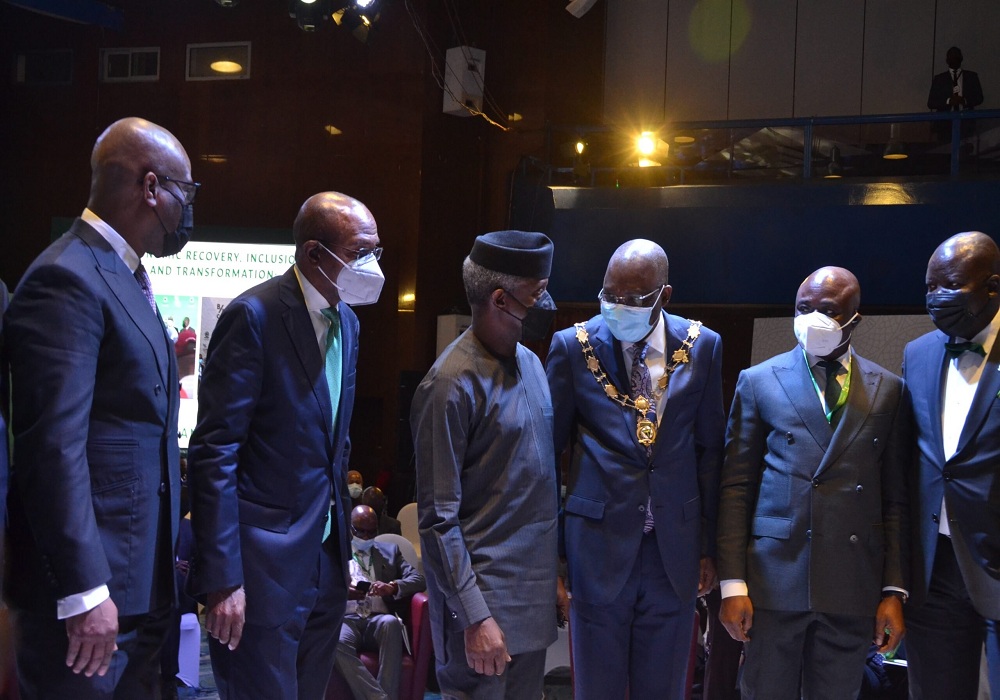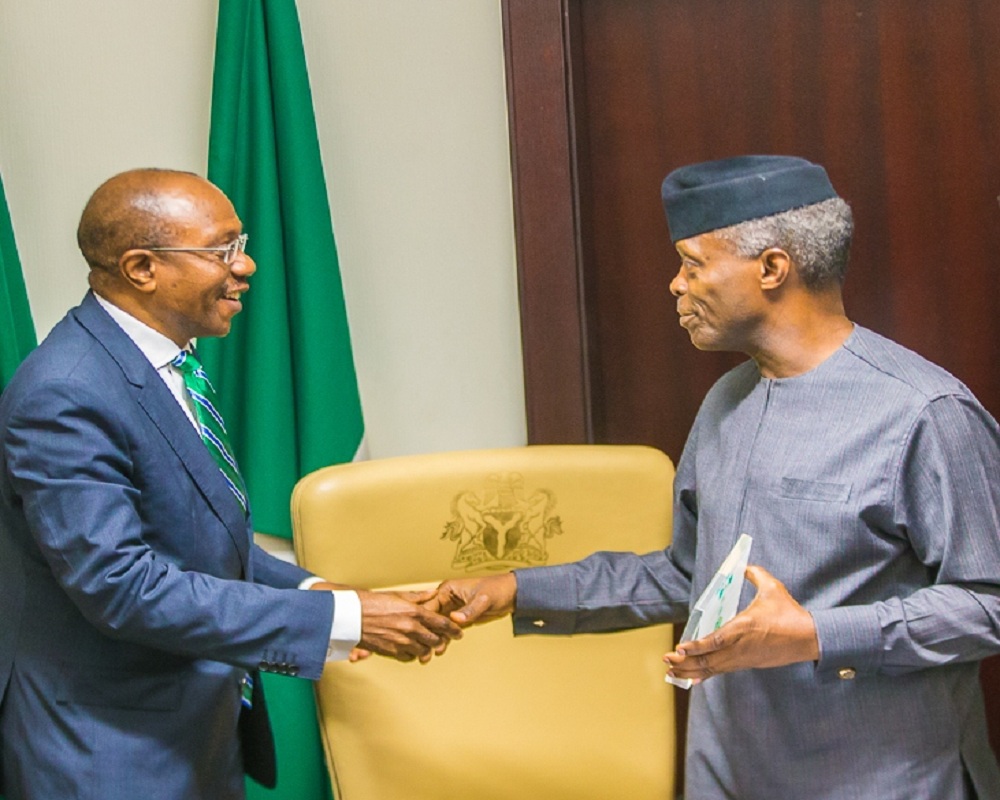Nigeria’s Vice President, Prof. Yemi Osinbajo, has stressed the need for banks to invest in housing and electricity projects, noting in particular that the housing sector is a mainstay of unemployment reduction and output growth.
Osinbajo, however, regretted that the banks were not doing enough in supporting the federal government’s efforts in the areas of housing and electricity as a result of poor funding.
The Vice President spoke on Tuesday as a distinguished guest of honour at the 14th Annual Banking & Finance Conference themed: “Economic Recovery Inclusion And Transformation: The Role of Banking & Finance” and organised by the Chartered Institute of Bankers of Nigeria (CIBN).
“It is either the finance sector is shy to invest in housing projects, or have not found the right housing finance model that will work for them. Nigeria do not have a functional mortgage housing system, which is the most reliable source of generating capital for individuals.
“Banks should come up with innovations such as housing financing, by supporting poverty reduction and economic growth. Ubiquitous housing, for example, will create employment and generate demand for related services,” the Vice President said.
He stressed the need for banks to join forces with the federal government to address climate change.
“One of the cheap considerations, especially for developing countries is how to move from fossil fuel-based power sources to renewable energy. It is a significant challenge and an enormous opportunity for developing countries.
“To achieve this, the federal government established an integrated Solar System for the electrification of 5million houses, to serve about 25 million Nigerians, under the Economic Sustainability Plan of government. The CBN set aside N150 billion for the programme, made available through the bank’s initiated programme that is administered by the banks.
“The programme has three core objectives: Expanding energy access to 25 million Nigerians; Increasing local contents; and Creating values chain experience. The programme is designed to supply cheap financing for developers, manufacturers and suppliers of electric components.
“The federal government is providing a subsidy of between 20 to 30 per cent for each successful installation, through the rural electrification agency programme, to further de-risk each transaction and the project has been on in the last two years,” Osinbajo added.
Governor of the Central Bank of Nigeria (CBN), Godwin Emefiele had in his address, described as “fragile” the country’s economic recovery process, notwithstanding the impressive second-quarter gross domestic product (GDP) performance.
He opined that efforts must be made to prevent the resurgence of COVID-19 to sustain the growth momentum as demonstrated by the 5.01 per cent growth recorded in the second quarter, noting that Nigerian banks were strong and resilient enough to support the economic recovery process.
The CBN he said, would in the next 12 months, establish the Nigerian International Financial Centre (NIFC), which would act as an international gateway for capital and investments, driven by technology and payment system infrastructure.

“This new financial hub will curate local and international banks to make them global champions. The NIFC will be a 24/7 financial centre that will complement London, New York and Singapore financial centres and enable an acceleration of our home-grown initiatives such as Infracorp Plc, the N15 trillion infrastructure fund which we will be launching in October 2021.
“The NIFC will also complement our initiatives on the Nigerian commodity exchange and the National Theatre creative hubs for our youths as well as the e-naira project, which will also debut in October 2021.
“The NIFC will take advantage of our existing laws such as the BOFIA 2020, NEPZA and other CBN regulations to create a fully global investment and a financial hub where monies, ideas and technology will move freely without hindrance.”
Emefiele noted that despite the growth of the sector, close to 36 per cent of adult Nigerians lack access to financial services, pointing out that “improving access to finance for individuals and businesses through digital channels can help to improve financial inclusion, lower the cost of transactions, and increase the flow of credit to businesses.”
The CBN Governor also said that about $500 million had been invested in indigenous payment companies between 2015 and 2020, adding that the platform had continued to evolve towards meeting the needs of households and businesses in the country.
He said that despite the various progress recorded in the banking and financial sector, about 36 per cent of the adult population currently lacked access to financial services in the country, noting that improving access to finance for individuals and businesses through digital channels could help to improve financial inclusion, lower the cost of transactions, and increase the flow of credit to businesses.
On the proposed apex bank’s digital currency, known as the e-Naira which is expected to be unveiled next month, Emefiele expressed optimism, saying it would foster greater inclusion using digital channels, supporting cross border payments for businesses and firms as well as providing a reliable channel for remittances inflows into the country.
He said that when fully deployed, the e-Naira would ensure that Nigerians in remote areas conduct financial activities using their digital as well as feature phone devices but however, pointed out that the support of the financial industry would be critical in the deployment of the electronic money.
He stated that efforts were ongoing to encourage continued partnership between the CBN and stakeholders in the financial industry.
The CBN governor also said the apex bank had been able to reverse rising headline inflation which fell to 17.38 per cent as of July 2021 and is now in its fourth consecutive month of this decline.
“Reflecting on several measures put in place by both the fiscal and monetary authorities, we do expect that the pace of inflation will continue to moderate in the following months as we approach the harvest season.”
“Let me add that while we have been able to contain some of the effects of the COVID-19 pandemic on our economy, it is imperative that we work to build a more resilient economy that is better able to contain external shocks, whilst supporting growth and wealth creation in key sectors of our economy.
“Proactive steps on the part of stakeholders in the banking and financial system in supporting the growth of sectors such as agriculture, ICT and infrastructure, will strengthen our ability to deal with the challenges that have been brought on by COVID-19, and stimulate the growth of our economy.”
Emefiele also emphasised the important role the banking community could play in fostering greater growth and stability to sectors significantly impacted by the pandemic while also supporting investments in key sectors of the economy that could have a multiplier effect on growth.

